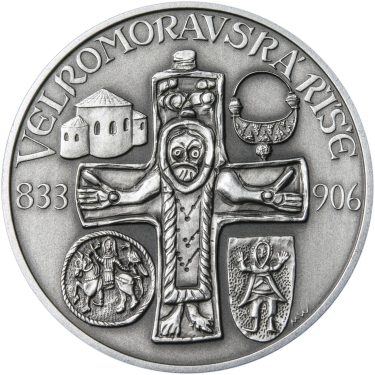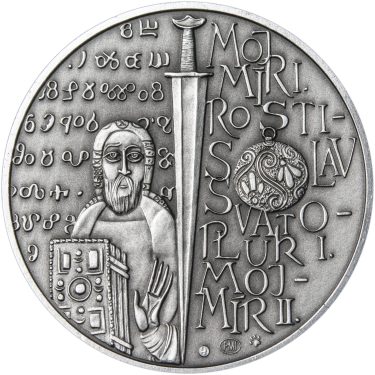Velká Morava - 34mm silver antique
BEST SELLERS
diameter: 34 mm
weight: 16 g
purity: 999/1000 Ag
edge: plain
limited mintage quality proof: 1000 pcs
limited mintage of unc. quality: 50 pcs
limited mintage quality antique: 50 pcs
issue day: April 2014
Objednávkový kód: CRM2002
weight: 16 g
purity: 999/1000 Ag
edge: plain
limited mintage quality proof: 1000 pcs
limited mintage of unc. quality: 50 pcs
limited mintage quality antique: 50 pcs
issue day: April 2014
Objednávkový kód: CRM2002
KRÁSA POD LUPOU
Fotografie použity se svolením Zlatemince.cz.
Fotografie použity se svolením Zlatemince.cz.



